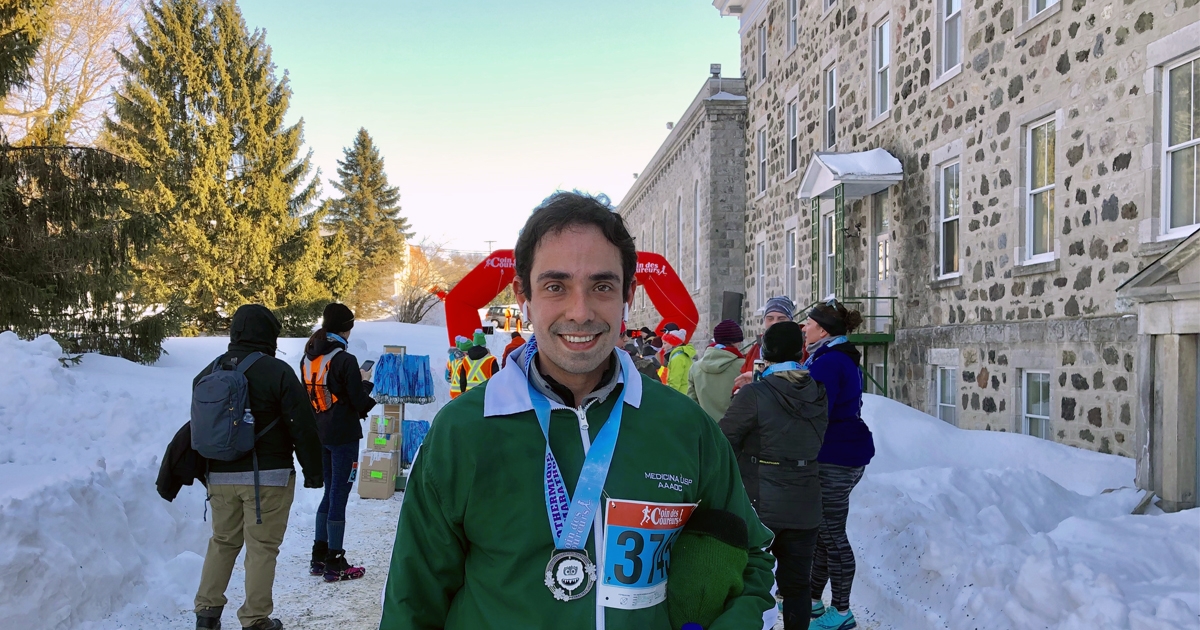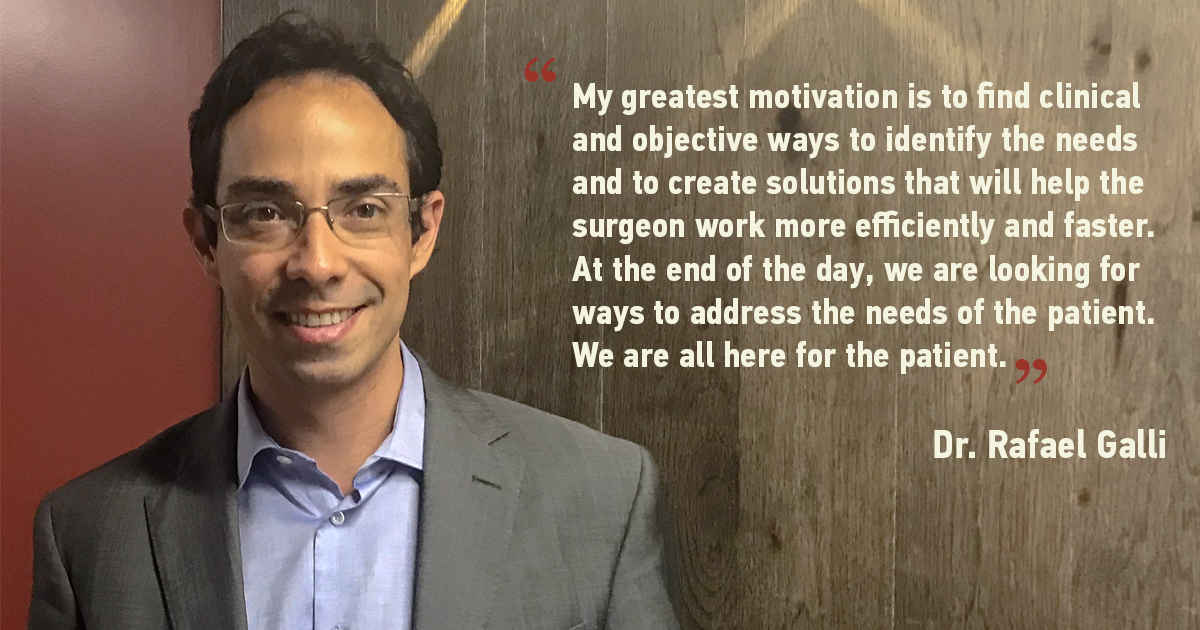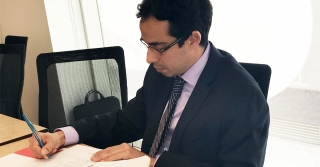Dr. Rafael Galli explains how interdisciplinary teamwork contributes to successful clinical innovation

By Diane Weidner, Steinberg Centre for Simulation and Interactive Learning
Dr. Rafael Galli is a craniofacial surgeon from Brazil who has a strong interest in clinical innovation and cutting-edge research. He originally came to McGill in 2015 to complete a two-year fellowship in Craniofacial Surgery, went on to complete a two-year fellowship in Surgical Innovation, and is currently in the process of completing his thesis for the Master of Science Degree in Experimental Surgery. This program allows for a hands-on learning experience for students to develop the skills necessary to work within multidisciplinary teams in the creation of needs-driven and marketable prototypes used in the development of novel surgical and medical devices.
“During our training period, surgeons have a lot of ideas for things that could be improved, but don’t necessarily have the time and knowledge to devote to this,” he explains. “We know what’s not working, but we need the engineering and business expertise to develop our ideas and find ways to make them better. My greatest motivation is to find clinical and objective ways to identify the needs and to create solutions that will help the surgeon work more efficiently and faster. At the end of the day, we are looking for ways to address the needs of the patient. We are all here for the patient.”

For example, Dr. Galli describes an incident that occurs frequently in the operating room when the instrument used to remove secretions gets blocked, resulting in delays. The problem is clear: how can we make the instrument stronger, or increase the fluidity? “The best solutions occur when an interdisciplinary team comes together to think about a problem. Everyone has their own unique experience and looks at a problem through a different lens. Every person’s perspective is valuable, and someone else may offer a valuable insight that you didn’t think of; this could be the tipping point that will change the innovation into something viable. That is what the surgical innovation program provides,” he explains. “Most importantly, this program teaches you how to work in teams, how to share ideas and workload. You don’t always get to choose your colleagues or your teammates, and you may not always agree, but the groups that are diverse are often more effective. This is one of the best learnings that a person can have. Even if their idea is not going to make them rich, learning how to work as a team and to face obstacles will help a person throughout their life, no matter where they end up.”
 Surgical innovation brings together the medical and engineering professions, inviting engineers into the hospital setting. It is very useful for engineers to go outside of their normal experience and witness surgery, so that they can better understand the challenges. Likewise, it is valuable for the medical professionals to learn from the engineers. As Dr. Galli points out, surgeons are like engineers in the medical field because they undertake complex planning to reconstruct anatomical structures. “There is a lot of technology involved in craniofacial surgery. We work with neurosurgeons to reconstruct the face and the orbits, assembling a person with miniature biocompatible plates and screws.” In this process, engineering concepts can be very useful, and combining the two disciplines creates opportunities to develop better equipment and systems.
Surgical innovation brings together the medical and engineering professions, inviting engineers into the hospital setting. It is very useful for engineers to go outside of their normal experience and witness surgery, so that they can better understand the challenges. Likewise, it is valuable for the medical professionals to learn from the engineers. As Dr. Galli points out, surgeons are like engineers in the medical field because they undertake complex planning to reconstruct anatomical structures. “There is a lot of technology involved in craniofacial surgery. We work with neurosurgeons to reconstruct the face and the orbits, assembling a person with miniature biocompatible plates and screws.” In this process, engineering concepts can be very useful, and combining the two disciplines creates opportunities to develop better equipment and systems.Although he completed his residency in Brazil over 6 years ago, this training is not recognized in Canada so Dr. Galli is completing his Plastic Surgery Residency Program at McGill. “With my innovation background and experience, I will have more skills to think about ways to improve the surgical process during my residency,” he says.
Dr. Galli loves to run in the cold weather in Montreal and recently took part in the Hypothermic Half Marathon in Oka, running the 10.5 km race in less than an hour. This initiative embodies his approach to innovation, to his determination and willingness to take on a challenge and run with an idea, to embrace the external forces at work and use these as motivation to propel himself forward.
March 4, 2019
